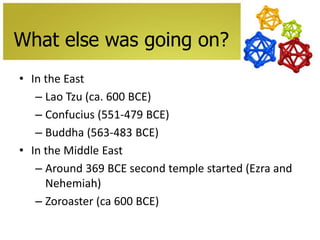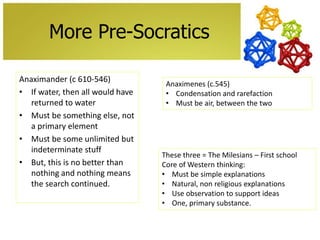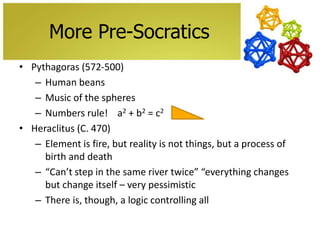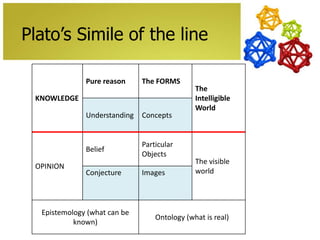The document explores the origins of Western philosophy, focusing on early Greek thinkers like Thales, Anaximander, and Plato, who sought to understand the nature of reality and change. It contrasts their ideas with contemporaneous Eastern philosophies and discusses the transition from a god-centered worldview to one influenced by observation and reasoning. Key themes include the pursuit of knowledge, the essence of existence, and the philosophical debates around materialism and morality.























